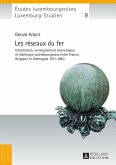This volume with an introduction by Stanley G. Payne focuses upon the singular career of Ernesto Giménez Caballero (1899-1988), a central figure in Spanish cultural life during the twenties and a harbinger of the fascist movement which menaced the nation in the years that followed. Giménez Caballero was the celebrated editor of Madrid's Gaceta Literaria, a literary journal which fostered experimentation and introduced its readers to such figures as Federico Garcìa Lorca, the futurist Filippo Marinetti, and even Salvador Dalí. The Revolt of the Aesthetes seeks to link developments in the arts to the emergence of fascism in Spain. Its vehicle is Giménez Caballero, but its scope encompasses much of pioneering aesthetic thought in Europe in the wake of the Great War.
"Douglas Foard gives the reader a new understanding of the development of radical doctrine among one sector of Spain's avant-garde intelligentsia, and of its further growth into a variant of fascist ideology in the years that followed not only in Spain, but throughout Europe as well.followed not only in Spain, but throughout Europe as well." (Stanley G. Payne, University of Wisconsin)
"Douglas Foard's fascinating and timely study evaluates objectively the late Ernesto Giménez Caballero (1899-1988) - 'the Spanish D'Annunzio' whose fascistic literary and political career often intertwined with the Falangist movement and Franco regime. This important book will be of interest to all students of modern Spanish politics and literature." (Charles F. Delzell, Vanderbilt University)
"Foard's study does not concentrate exclusively on the Spanish case; it also illuminates those themes that theoretical fascism was able to borrow from the aesthetic critique of industrial society. The book is solidly grounded in Giménez Caballero's publications and secondary sources; although not all the insights are new, it aids in understanding the Spanish crisis of the 1930s." (Walther L. Bernecker, Hispanic American Historical Review)
"Douglas Foard's fascinating and timely study evaluates objectively the late Ernesto Giménez Caballero (1899-1988) - 'the Spanish D'Annunzio' whose fascistic literary and political career often intertwined with the Falangist movement and Franco regime. This important book will be of interest to all students of modern Spanish politics and literature." (Charles F. Delzell, Vanderbilt University)
"Foard's study does not concentrate exclusively on the Spanish case; it also illuminates those themes that theoretical fascism was able to borrow from the aesthetic critique of industrial society. The book is solidly grounded in Giménez Caballero's publications and secondary sources; although not all the insights are new, it aids in understanding the Spanish crisis of the 1930s." (Walther L. Bernecker, Hispanic American Historical Review)








